I do not experience any joy at needing to write this text. The ideas that I am about to engage with are neither revelatory nor original. My exposition will be detailed and lengthy because the subject matter relies on nuance and the congruity of opposing ideas. My thesis, however, is simple: the scientific method is vulnerable to social influence, politics is socially driven even when it claims it isn’t, and under conditions of stress both, as well as our individual decisions, can be less rational than we’d like to believe. I feel that for some of my friends and acquaintances who are gripped by fear or ideological fervour even in the second year of the Covid-19 pandemic, an introduction to the ideas of the philosophy of science and basic ideas of political decision-making may be of some use. I will attempt to convince you that the rationality of science has been a myth that has led you, your government, and your scientists into a potentially perilous territory in which ideological decisions masquerade as benevolent reason.
“We have, of course, been following the science throughout the pandemic.” This once reassuring refrain from Prime Minister Boris Johnson, adopted and adapted by politicians and public health officials around the world, has had to do a lot of work in the past two years. It became the background for demands like stay home, save lives and get boosted now. It has also had to cover for a lot of politics, including at one time the prioritising of health over the economy, at another the opening of the economy despite ongoing public health concerns. Once, ‘the science’ justified delegating the responsibility for interpreting public health principles to individuals, shops, or opera houses, while at another it called for tight state control over daily life. Science has had to be flexible enough to allow for exemptions and excuses, as well as the odd media bust-up of politicians in Christmas party hats.
In as much as Johnson’s mantra has attracted widespread derision, its ongoing success in motivating public health policy points to a fundamental need that we all feel in navigating the second year of the pandemic: it all must have been for a reason. ‘The science’ did the demanding work of shaping the public realm but it also helped us all individually. We want to understand the pandemic in terms that relate to our rational understanding of the world, we need to see our reaction to it as reasonable, and we hope that by ‘following the science,’ we too are giving ourselves the best chance of coming out unscathed. Who decides to barricade themselves at home for weeks unless there is a good reason for it? Who wants their five-year-old to wear a mask in kindergarten unless a scientist suggests that they should? This is why ‘in this house, we believe that science is real’: without it, we could not account for our individual and collective behaviours.
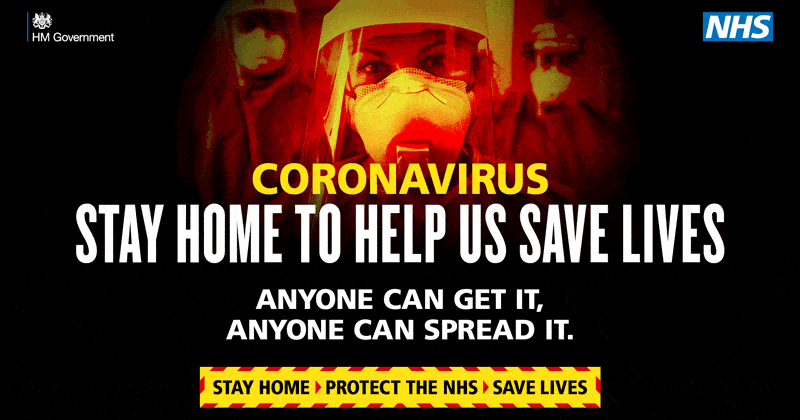
Is there a limit to what we can expect from science? Would we know if we have passed the threshold of reason? How can we be sure that while shaping political and personal decisions, science remains independent, transparent, consistent, benevolent, unambiguous, and preferably easy-to-understand? These are some fundamental questions to ask of science that become even more crucial when ‘the science’ paradigm takes centre stage. I will hazard some answers. Yes, there is an end to any science of the day and politics permeates its boundary. No, we are no good at knowing when we are out of our depth and where we have abandoned reason. And no, again, we cannot expect science to answer our questions in a way that we ask ‘the science’ to. Not the questions we are asking right now, in any case.
Of course, this does not mean that the pandemic is a hoax or that the vaccination programmes are a conspiracy. The scientific method is not in trouble. However, it does mean that when you spent your Christmas lunch trying to out fact-check your vaccine-sceptical uncle or cited studies to argue with your brother about the effects of mask-wearing, you were relying on what is at best good taste in authority figures and at worst a naïve belief in how science works. And this is likely the case even if you happen to be an epidemiologist.
I am not merely accusing most of us of a profound collective lack of scientific literacy: the reasons are more difficult to overcome. There is a fundamental mismatch between the complexity of science, its public application, and how we individually experience it. We’re lost in ‘the science’ because there is a great distance between data, scientific theory, medical advice, public health policy, and finally, implementation. Each point of this value change involves uncertainty, error, belief and bias, potential for corruption and miscommunication, or may simply be subject to handling with a lack of expertise.
As a result, we are witnessing first-hand a breakdown between the complex nature of scientific practice and how we are individually and institutionally prepared to act on it. Consider the following sequence of questions, all of which have contributed to shaping our responses to the pandemic. Does 5G cause Covid-19? How does the vaccine work? Do lockdowns speed up or slow down the mutation of the virus? When a booster jab decreases the likelihood of hospitalisation by 70% but increases transmissibility two-fold, what can you learn about the new variant if you observe it within the conditions of a circuit-breaker lockdown? Would prioritising vaccinating everyone worldwide over boosting certain populations still have been a better idea, now that we know of the Omicron variant? What can you say about the relative benefits of prevention programmes of Florida and New York, given their different climates, population density and demographics, and different approaches to public service provision?
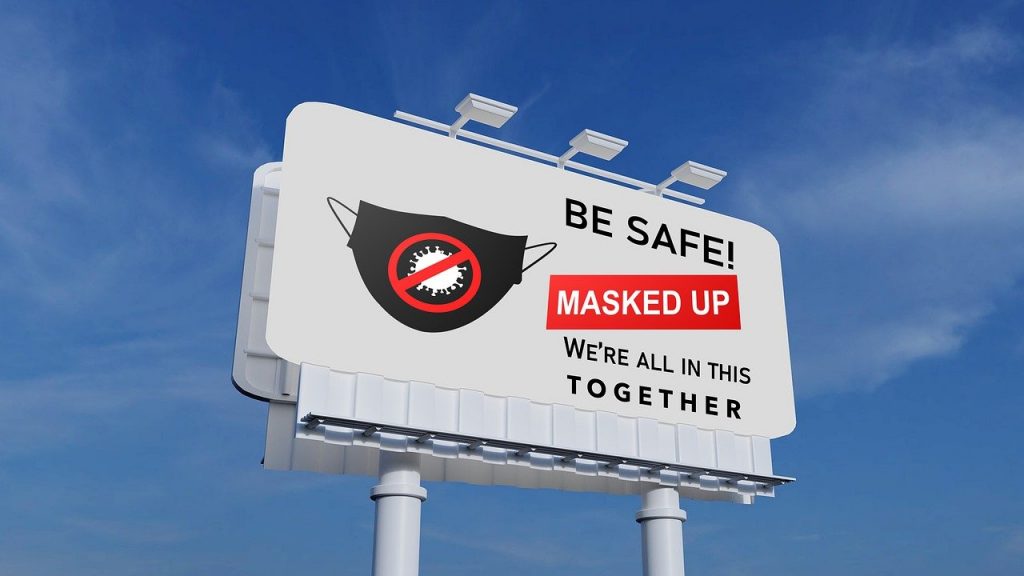
Each of these questions, either already answered or answerable in principle, relies on a different level of engagement with the scientific method and the predictions of a vast array of scientific processes. To understand how we may continue to make decisions under the conditions of uncertainty, three questions are relevant: does it matter if we understand the science, does it matter if our politicians do, and do scientists themselves know what they’re talking about? I will attempt to address these problems in reverse, beginning at the source of ‘the science’.
The Science doesn’t exist
Beginning with a consideration of the scientific method itself seems necessary given the proliferation of scientific and pseudoscientific claims that the pandemic has attracted. What we commonly refer to as science, put simply, is a set of processes described by Isaac Newton in the 17th century aimed at confirming theoretical hypotheses through observation, data gathering, and analysis, twinned with scepticism and neutrality towards any set of results.[1]Newton, Isaac. Philosophiæ Naturalis Principia Mathematica. 1st ed., 1687. This is the science we know from our school science classes in which we saw with our own eyes that a feather falls to the ground just as quickly as a stone in a vacuum tube and the science that allows a simple pill to alleviate our headaches. Simple, tested, observable, rational, and all the result of generations of iterative developments.
Seen in this light, science is the engine of progress, providing answers to ever more challenging questions. Indeed, the stories of medicine or engineering have inspired plenty of confidence in science’s ability to solve increasingly challenging problems. Science put humans on the moon. Science will, eventually, cure cancer. However, the idea that the scientific method as it is daily practised by thousands of researchers, theorists, lab technicians, and data analysts in a vast array of disciplines is in and of itself directed towards some greater good is naïve. In his 1962 book The Structure of Scientific Revolutions, Thomas Kuhn suggested that the scientific method is incompatible with inevitable progress because any significant re-evaluation of an accepted scientific truth may at any point change the course of development.[2]T S Kuhn, The Structure of Scientific Revolutions, ISSR Collection (University of Chicago Press, 1996). A decade later, Bruno Latour’s and Steve Woolgar’s observation of Laboratory Life suggested that far from being driven by some grand search for truth, scientists approach their work with the same prosaic attitudes and social pressures as the rest of us.[3]Bruno Latour and Steve Woolgar, Laboratory Life: The Construction of Scientific Facts, Laboratory Life: The Construction of Scientific Facts, 2013. Not much later, Peter Freyerband argued Against Method that the understanding of the social constructions of knowledge posed a significant threat to the ideal of the scientific method altogether, proposing that it be replaced with a theory more familiar from the humanities.[4]Paul Feyerabend, Against Method: Outline of an Anarchistic Theory of Knowledge (Atlantic Highlands, N.J: Humanities Press, 1975). Together, such accounts should have changed plenty of how those of us who do not practice science try to understand it. For those, like me, who have been trained in science, it should have drastically altered the way we are taught.
These observations point to a certain fallibility of the scientific method: scientific disciplines are not any more isolated from human, social, or political influence than their counterparts in the arts and humanities. At a base level, science remains a practice of judgment based on the evaluation of clear-cut evidence. Evidence, however, takes many shapes and forms, presents different degrees of confidence, makes itself subject to some types of scrutiny more readily than others, and is always subject to human manipulation. This inescapably means that in its iterations, the scientific method relies in part on trust, that is on knowing which knowledge and expertise, including their own, a scientist may take for granted, and where they are better off deferring to others or reserving their own. Nathan Ballantyne’s recent work on epistemic trespass and humility suggests that many may struggle with finding the right balance in making such calls, not because scientists are more prone to error than non-scientists, but because much of contemporary scientific research relies on the synthesis of the knowledges from multiple disciplines and fields.[5]Nathan Ballantyne, ‘Epistemic Trespassing’, Mind 128, no. 510 (2019): 367–95, https://doi.org/10.1093/mind/fzx042. [6]Nathan Ballantyne, ‘Recent Work on Intellectual Humility: A Philosopher’s Perspective’, The Journal of Positive Psychology, 5 September 2021, https://www.tandfonline.com/doi/abs/10.1080/17439760.2021.1940252.
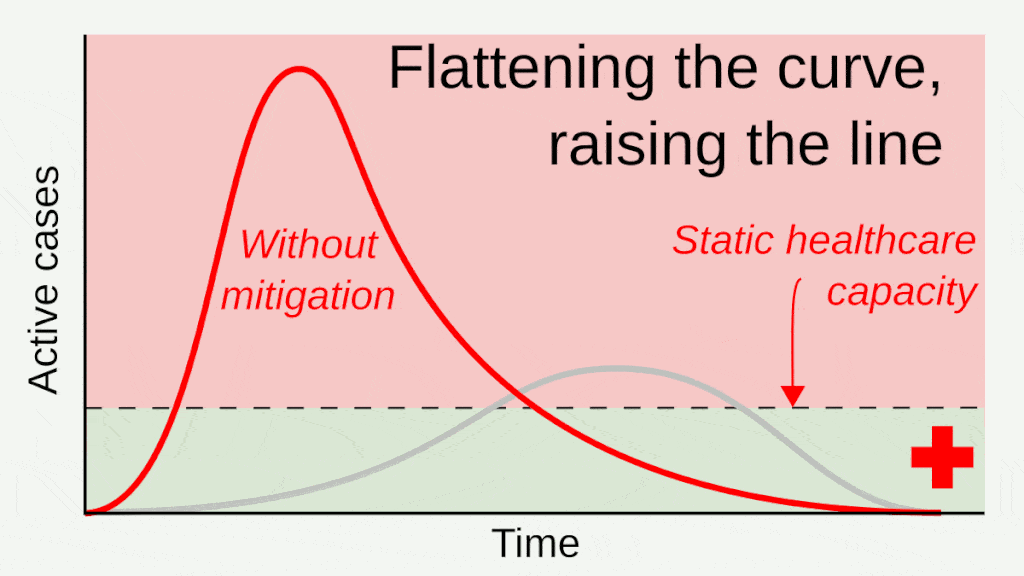
The scientific disciplines also have their internal politics. Take, for example, the competition for funding of various research endeavours, or the competition for publication and attention within the community itself. Science, like other branches of knowledge, thrives on novelty, bold claims, and a degree of glamour. That this is prone to produce deeply flawed knowledge should be evident from the 1989 cold fusion hoax as much as it is from the ongoing replication crisis.
In normal times, none of this warrants excessive levels of scepticism towards the body of science itself. Science remains a reliable way of describing the world and the method’s relationship with itself and its products is such that any erroneous knowledge produced through mishap or manipulation can be rectified as such knowledge is applied at scale and in the long term. It may take time to discover that certain medical interventions do more harm than good but the principle by which such rogue ideas were designed is the very same one that eventually invalidates them. Once knowledge has been tested, applied, and tested again multiple times, it eventually passes into the realm of scientific fact, even if its journey wasn’t straightforward.
Time on a longer scale also allows for the discovery and eventual correction of other biases present within scientific disciplines that may be more difficult to observe within the context of the laboratory. For example, Andrew Curran has argued that the relationship between the Enlightenment rise of the scientific method and the colonialism of the British Empire was more than a unilateral application or misapplication of scientific ideas by non-scientists.[7]Andrew S. Curran, The Anatomy of Blackness: Science & Slavery in an Age of Enlightenment, Johns Hopkins paperback ed (Baltimore, Md: Johns Hopkins Univ. Press, 2013).

But there is little space for these reflexive processes to set in a rapidly changing situation. There has barely been enough time at any stage of the Covid-19 pandemic for scientific communities to reach ordered consensus, hence their repeated reminders that the virus remains relatively unknown. Under normal conditions, scientific discovery requires collaboration, corroboration, and verification, processes that take place through experiments as much as they do in the notoriously slow process of academic publishing, international conferences, and cycles of research funding. During the pandemic, scientific opinion has been solicited continuously, with high stakes, often without sensitivity to the context in which such opinion can be understood. In this context, scientists may be incentivised to rely more heavily on judgment and less on verification than they would have otherwise.
Unsurprisingly, there is no guarantee that two scientific inquiries testing the same hypothesis may produce identical results just because the world’s lives depend on it. For example, two studies evaluating the relative merits of ‘natural immunity’ against vaccination have both found strong evidence (by factors of 5 and 13), but in opposing directions.[8]Ari Schulman and Brendan Foht, ‘Is “Natural Immunity” Better Than Vaccination?’, The New Atlantis (blog), 20 December 2021, https://www.thenewatlantis.com/publications/is-natural-immunity-better-than-vaccination. Comparing the two requires a significant amount of scientific proficiency in the art of reading scientific papers, plenty of background knowledge, and a fair amount of goodwill towards the assumptions the studies’ authors make on behalf of their research. Science communicators Schulman and Foht expend a couple of thousand words on explaining why the studies do not compare like for like even if that may be what their headlines indicated. We don’t know for sure whether it’s better to catch Covid or to avoid it through vaccination because the studies were not designed to answer such questions definitively.
What about those recurring questions that scientific advice in many European countries appears to be very confident in: do lockdowns save lives? To pick the best solution for the next phase should then be easy and the scientific recommendations of lockdowns have been forthright. What the scientific answers to such an important question lack is falsifiability: because we cannot at the same time run an experiment in which Italy was tightly locked down and another in which the virus is allowed to rip, we cannot know the precise impact of the intervention with absolute certainty. We know that France and Italy locked down early and tightly, we blamed the British Government for waiting too late, and we envied the Swedes for coming out relatively unscathed without imposing any onerous measures, but because a great number of factors such as levels of social trust and the population’s compliance are difficult to account for, any comparisons are likely to be heavily caveated in ways that may or may not sway their validity in repetition.
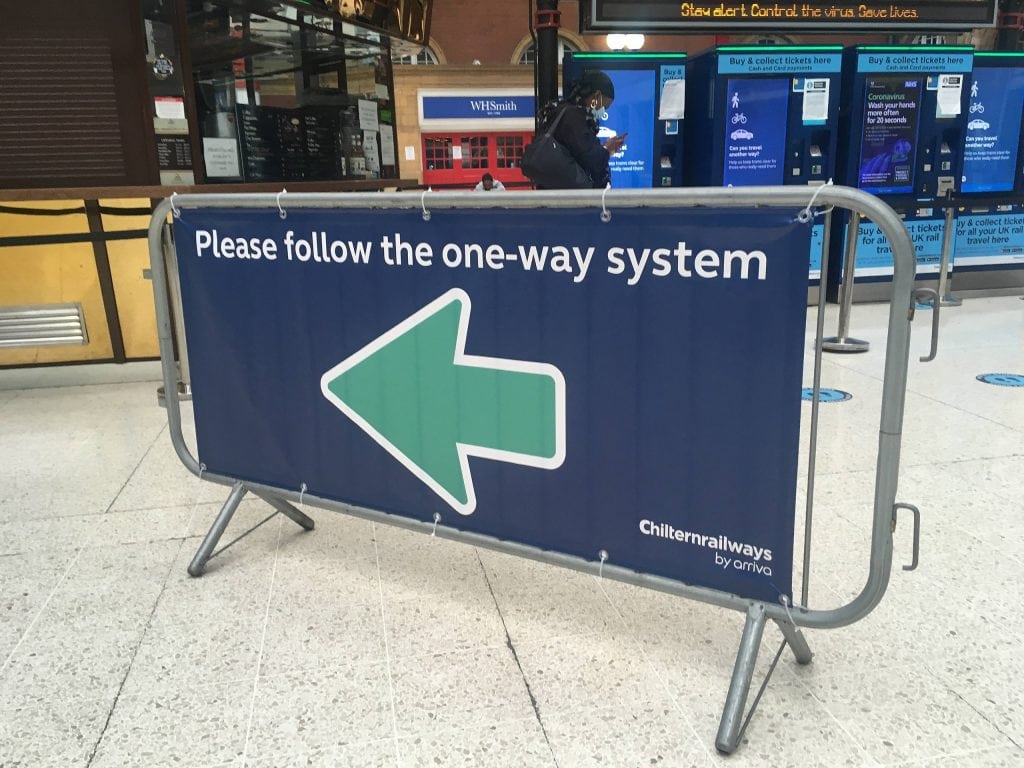
Finally, what happens when study results are wrong but are not treated seriously enough to re-examine other findings? A recent study promoted by the Centres for Disease Control suggested that masking kindergarten children was of proven clinical benefits,[9]Megan Jehn et al., ‘Association Between K–12 School Mask Policies and School-Associated COVID-19 Outbreaks — Maricopa and Pima Counties, Arizona, July–August 2021’, Centers for Disease Control and Protection; MMWR. Morbidity and … see more despite gaping errors in the authors’ analysis being pointed out by a mere journalist.[10]David Zweig, ‘The CDC’s Flawed Case for Wearing Masks in School’, The Atlantic, 16 December 2021, https://www.theatlantic.com/science/archive/2021/12/mask-guidelines-cdc-walensky/621035/. In the UK, the chair of the modelling committee of the scientific advisory body SAGE has all but admitted that their attention is focused on pursuing only a limited range of scenarios and outcomes, leaving little space for potential falsification.[11]Fraser Nelson, ‘My Twitter Conversation with the Chairman of the Sage Covid Modelling Committee | The Spectator’, The Spectator(blog), 18 December 2021, … see more
Again, these examples do not invalidate the nature of scientific discovery, nor do they throw the validity of epidemiology as a science into doubt. Plenty of the questions I posed here have unambiguous answers: we know how the virus transmits, we know what lockdowns do, we can make predictions about mortality rates and treatment options. These aren’t mere speculations. However, the degrees of scepticism I have proposed here range from the purely scientific to the political and I present them here to underline the difficulty of conducting and acting on science under strain and pressure. There is a sour paradox to a method that relies on experimental verification for the very constitution of its ideas and theories that it is required to make binding predictions that affect lives in their very first application. In principle, even this will be overcome by the scientific method, given sufficient ability to develop iterative protocols and a reduction in the degrees of complexity. Meteorology is one example of this process working well: the intricate weather patterns of the world are described daily by a large but finite set of observations, models are developed, predictions are made and their predictions are eventually compared with the weather states observed the following day. The work of thousands of scientists, the expense of considerable computing power, and the collaboration of many nations have meant that we are now pretty good at telling the weather. Still, people continue to die in hurricanes and floods, whether these are predicted or not.
Politics does not care for evidence
Preparing for the devastation of a flood is not unlike coordinating the resources of a country in response to a pandemic, in as much as they both rely on translating scientific predictions into action through a process of politics. One of the early paradigms of the pandemic was the stark choice between saving lives and protecting the economy. This choice was presented as binary, as though the economy could benefit from an increase in the population’s death rates. While many critics rightly protested that such a dichotomy was false, the draconian nature of the early interventions such as lockdowns and travel restrictions effectively enforced that impossibility of imagining any half-measures. Governments worldwide have thus gone for all-or-nothing approaches: Stay home, Save Lives, Protect the NHS.
The theorist Keller Easterling has proposed that the unnecessary binary is a feature of a system that protects its hegemony.[12]Keller Easterling, Medium Design: Knowing How to Work on the World (Verso Books, 2020). The binary is a political system’s retaliation against nuance, conflicting information, designed as a response to what it may perceive or project as the alternative of chaos and disinformation. Politics as we know it is, therefore, the perfect antithesis of the nuance of the ideal of the scientific method: it despises uncertainty, avoids verification, ignores the second opinion.

Politics is, however, also the perfect companion to science. In a democratic state, the function of politics is to evaluate scientific advice and act on it under the political mandate afforded to the state. And what is the mandate of the state? Is it the protection of its people? Is it the preservation of life in the immediate term, the utilitarian goal of maximising the collective happiness? Or is it, in practice, the maintenance of good scores on the matrix of economic, social, and cultural such as GDP, the divorce rate, or museum attendance numbers?
Because answers to these questions are often as elusive as those of science, even narrowly defined politics is a practice shaped by bounded rationality,[13]Paul Cairney, Understanding Public Policy: Theories and Issues, Textbooks in Policy Studies (Bloomsbury Publishing, 2019), chap. 5. that is the limitation imposed by the sheer difficulty of weighing up the pros and cons of all the possible policy options, predicting its outcomes, and remaining accountable to the electorate within an electoral cycle. Politics, therefore, is a way of translating the complex recommendations of science through the prism of complex and sometimes conflicting imperatives and implementing them through imperfect mechanisms. It’s a terrible system, but we are yet to develop an alternative.
The bounded rationality of political decision-making stands in contrast with the ideal of evidence-based policymaking, which is a decision-making process that takes account of all the implications of its implementation. Evidence-based policy, in principle, delivers precisely what it purports to, never falters, and can account for its side effects. The closest we come to this in UK healthcare may be the role fulfilled by the National Institute for Health and Care Excellence (NICE) which evaluates the benefits of therapies against their costs to assess their viability as solutions for the NHS. Given the seriousness of the pandemic and our investment in the evidence-driven scientific solutions to it, should we not insist that politicians now more than ever follow the evidence trail in designing policy responses? Isn’t it good that Johnson’s Cabinet has been led by ‘the science’? There are multiple reasons for which the expectation of perfect rationality and evidence-responsiveness is a phantasy under current conditions. Firstly, the ideal of evidence-based policy is only useful as a frame by which to assess the failure of real political processes:[14]Cairney, Understanding Public Policy. only a perfect technocracy would be able to follow the suggestions of scientists and statisticians and that at the cost of choosing its own objectives.
Secondly, there is scant evidence that our politicians understand the scientific evidence with which they are presented. It was widely assumed that in the early days of the pandemic, Donal Trump remained wilfully ignorant of the threat to public health and this led to sometimes comical disagreements between his administration and his medical advisor Anthony Fauci. The recent controversy over the quality of the data presented to the Government by SAGE has suggested that British politicians are far from able to maintain an ongoing in-depth understanding of all the advice, evidence, counterevidence, and interpretation they are required to absorb daily.

What may the solution be? Sam Freedman of the think-tank Institute for Government has called for a complete overhaul of how scientific advice is solicited and evaluated by government and media, an effort that would be enhanced by additional maths education for all.[15]Sam Freedman, ‘New Approach Needed to Avoid Covid Data Disputes and Modelling Misunderstanding’, The Institute for Government (blog), 22 December 2021, https://www.instituteforgovernment.org.uk/blog/covid-data-modelling. This proposal, as much as it is a step towards the paradigm of evidence-based policy, is strikingly unrealistic. Would it not be simpler to accept that the political decisions based on scientific advice are inherently political, that is that they involve judgment, the very faculty we elect politicians for?
Our collective refusal to understand the elusive nature of ‘the science’ allows us to blame politics and politicians for any adverse effects of their decisions, whether these decisions are rooted in scientific advice or now. When thousands of people died in the early months of the UK pandemic, it must have been because politicians ignored sound scientific advice. Conversely, when many more hospitality workers lost their jobs as the result of health protection measures, it was again the politicians’ fault, not science’s. With this pattern, we have erected the perfect buffer that prevents us from confronting the arbitrary nature of the pandemic and the subjective nature of political judgment. Might this be because we already know that the judgments all involve difficult trade-offs and we wouldn’t want to be the ones making them? Faced with an endless stream of advice, reliable or not, a lobby full of competing interests, a desire for self-preservation, and an ethical instinct, would any of us be able to make decisions that strictly ‘follow the science?’
Your decisions are less rational than you think
How do individuals navigate the scaling complexities and ambiguities of science and its political representations? When we access scientific information, how do we evaluate its veracity? What is the likelihood that any scientific information we acquire corresponds to the truth?
The last substantial review of public attitudes to science in the UK dates to 2019.[16]‘Public Attitudes to Science 2019’ (Department for Business, Energy & Industrial Strategy, 16 July 2020), https://www.gov.uk/government/publications/public-attitudes-to-science-2019. At the time, the population displayed increasing confidence in science and appreciated its positive contribution to society. A falling number (43%), however, thought that the science they had learnt at school had any relevance to their daily life. About half believed themselves to be confident followers of scientific developments, but over a quarter admitted to not feeling clever enough. Those who felt better informed, generally were, although the majority did not understand how scientific research is funded. Only half of the population believed that the information they received about science was generally true, and some 36% didn’t know how to evaluate the veracity of such content. TV and radio maintained the most trusted sources of scientific information, with Facebook and self-initiated online searches following closely.
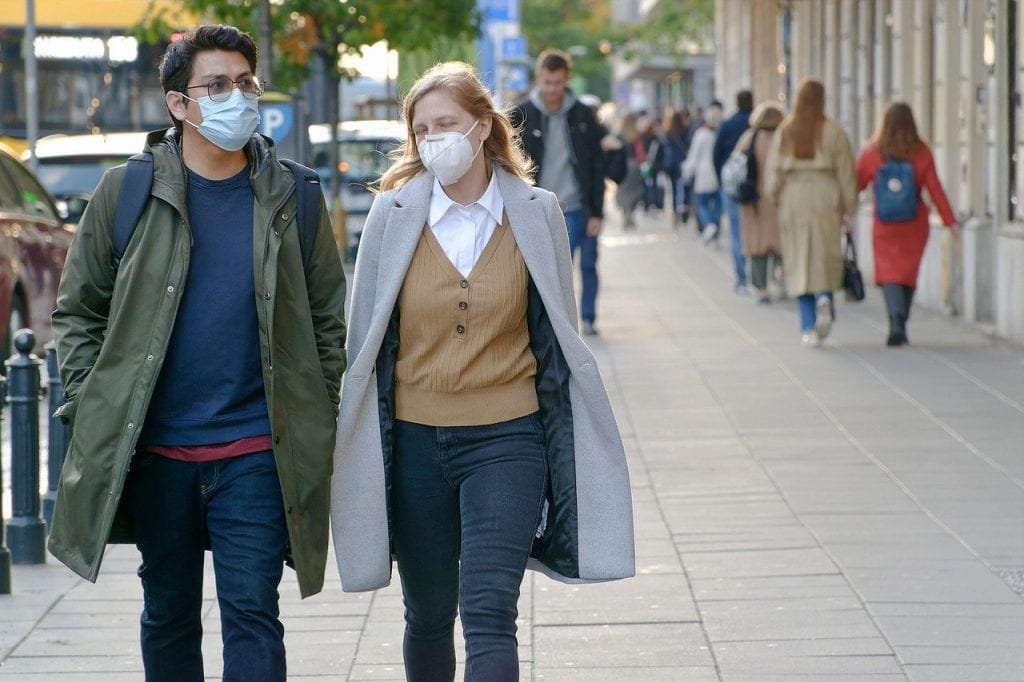
This is a frustrating position from which to enter a global pandemic. In the early months, media became obsessed with graphs and numbers, introducing the public to logarithmic scales, rolling averages, although stopping short of correlation coefficient and confidence indicators. The UK Government’s press conferences, likewise, ended in a chorus of ‘next slide, please’, choreographing the appearance of transparent and consistent science-led decision making. On the surface, the relationships between data, politics, and the requirements placed on the individual were clear: the higher the chart, the more severe the restrictions on daily lives must be. But it remains an open question if the UK public understood the data presented to them. Did they know what questions were being asked and which were omitted? What was so magic about the virus’ replication number r0? Why the rule of six, and why two meters between us?
Was it possible for anyone not entirely invested in investigating a whole range of data, studies, interpretations, and precedents to follow these issues in detail and adjust their behaviour to them accordingly? Given the complexities of the scientific basis of outbreak management and prevention I outlined earlier, I suggest that this would have been impossible for anyone but a highly trained statistician epidemiologist with plenty of time on their hands. For any layperson, it has been nearly impossible to understand the link between data and the action required of them, let alone to know why this link may have legitimately changed in time.
The paradoxical, if not sinister, part of the situation has been the Government’s outsourcing of the interpretation of public safety rules to individuals and businesses. While ‘the science’ was clear, the guidance remained vague and at points arbitrary, as though the levels of compliance were of little importance to their success. In the UK, the messaging reached a level of absurdity with a variety of threat indicators of were introduced and abandoned: who remembers the traffic light severity level system? As result, public attention was diverted away from the facts and figures to a practical, if not irrelevant realm. When, for example, bars could only remain open if they were serving food, the definition of a ‘substantial meal’ became the subject of media jokes without any connection to the health concerns themselves.
All this has undermined any possibility of the public’s understanding of the science behind the escalating and wavering measures imposed by governments. The incredible duplicity of this system is that it pretends to be neither authoritarian nor draconian while demanding the highest levels of compliance from the public. Whereas parts of the European Union have imposed strict requirements for vaccination passports or testing mandates as conditions for civil participation, the UK has avoided explicitly demanding that the public ‘to as they’re told’. Instead, though the constant reference to ‘the science’ that has become stripped of its truth-seeking function, the UK society has been conditioned to desire strict control measures lest the science enacted its revenge. And so in late 2021, public venues such as theatres and museums were left to decide for themselves whether mask-wearing should be compulsory or not, falling short of offering any new guidance. By then, the public attitude shifted towards a doctrine of maximum safety, all of the time. What did museum curators know about the Omicron variant that the Government’s scientific advisors did not?
Some have continued to cling to the notion of ‘the science’, picking arguments while armed with an array of facts and figures that have been easily accessible in just about any news outlet. This works well enough for a moment, as long as the choices are binary and simple. Do you want to convince someone that another lockdown is inevitable? The Guardian has a chart for that. Do you want to justify your dislike for wearing masks in public? The Telegraph lists some studies that will make you feel better. Do you want to learn about vaccine safety? Facebook will serve you some convincing pro and con data. None of these sources, however, will take into account any of the nuance, context, evolution, or indeed trade-offs involved in making individual and societal decisions based on the data they present. The media sources, just like politicians, have reverted to type and usually argue from ideological principles for which science is merely convenient background. At closer quarters, I am yet to see an individual deploy science against the public health position I had expected them to adopt knowing their general political alliances.
Where do we go from here?
This lengthy analysis will be of limited use, lest it helps us to acknowledge that the relationship between science and political or individual action has the potential to be largely arbitrary and that the circumstances of the pandemic have made it highly likely that it indeed has been. I do not believe that even those of us who think they possess a degree of scientific fluency that would equip them to make sound judgments in principle have been able to make those judgments appropriately under the conditions of diminished trust and transparency. This is an issue distinct even from Ballantyne’s problem of epistemic trespassing to which practical solutions exist and consist of careful examination of the credentials and competences of experts from whom we draw advice.[17]David Dunning and Nathan Ballantyne, ‘Which Experts Should You Listen to during the Pandemic?’, Scientific American Blog Network, 8 June 2020, … see more
The problem we face now is one of programmatic disinformation and mistrust. The volume of conflicting information and the cognitive load required of any individual trying to make sense of it is such that they are unable to proceed without resorting to belief, simplification, or confirmation bias, often unconsciously. No wonder that many have interpreted any resistance to vaccination as a sure sign of antiscientific irrationality associated with the worst conspiracy theories, while those sceptical of the cycle of lockdowns have come to regard the safety-first faction as a cult. The net result is that whoever can make claims of controlling or following ‘the science’ is likely to command public consent.
None of the accusations I have levelled at science, politics, and society helps us in making the daily decisions that determine our health as well as the overall shape of the public sphere that we inhabit. My concern at the shape that politics takes if we simply comply and do not meaningfully engage with the interface of science and ideology is that it is likely to reaffirm a hegemony that we can ill-afford; as Easterling observed, the presence of conflicting information builds up a Teflon coating on which the very rationality we hope to achieve slips and slides.[18]Easterling, Medium Design. Opting out completely is a tempting option, but it also requires a sacrifice of rational principles.
I, for one, am ready to admit that many of my own ‘rational’ decisions during the pandemic have been driven by ideological convictions. I elected to take all three of my vaccine doses so far partly because I have had plenty of experience with other vaccinations and was satisfied that I could, should I have wished to, closely examine and understand their efficacy and safety profiles. I am in split mind over masks, finding them unnecessary outdoors, inefficient in venues when large groups spend long periods, but potentially worth the inconvenience for the protection they offer in short encounters at the corner shop. Where I know that my convictions remain purposefully unconcerned with science is the matter of vaccination passports or mandates that I oppose on purely political grounds.
I do not propose these as model behaviours but instead suggest that in many of the decisions we now face, understanding the fallibility of science, our lack of understanding of its detail, and the pervasive nature of ideological belief may help us to collectively arrive at a new understanding of what our goals are and how we may go about achieving them.
Notes

